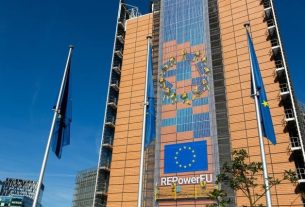There is no doubt that innovation is a necessity in contemporary economies. Investment in research and development (R&D) is essential for firms and countries and contributes to a strong economy through job creation, income generation and long-term economic growth. In the last years, to cope with global growth in innovation and technology, many of the MENA countries have developed individual initiatives, strategies or policies to promote innovation and the knowledge economy. But as a result, the current state of scientific cooperation in the Euro-Mediterranean region is characterized more by North-South interactions than by South-South collaboration.
Heat waves impacted much of North Africa and Europe before summer even started. Meteorologists have heralded this unusually early heat wave as a sign of what’s to come as global warming continues, with all that it implies: rising sea levels, disappearing biodiversity, the heat we’re sweating through on both shores of the Mediterranean…
As one of the world’s main hotspots, the Euro-Mediterranean region faces common challenges that do not stop at borders from climate change and droughts to a pandemic. More than ever, we need to innovate. Together. If we want to achieve both a green revolution and economic growth, we need to put scientific research cooperation at the centre of our development strategies. This requires coordinated efforts to promote resource and knowledge sharing, create new joint initiatives, and increase communication among our existing systems.
But research doesn’t, or shouldn’t, happen in a vacuum. Therefore, research and innovation still need to be linked to local industries and economies. More dialogue needs to happen between academia, industry, and governments if we want research to be seen as an opportunity to address the disparities in our societies. That’s why it’s crucial we do not solely strive to make the world of research more accessible but to ensure that its impact is felt across Mediterranean economies, making a case for a sustainable and equal future, based on skills and hard facts.
This is where the education, research and innovation triangle continues to demonstrate how constant interaction between these three endeavours makes viable innovation possible. Access to higher education and research opportunities not only brings a country significant economic return, but also helps individuals reach their full potential.
According to UNICEF estimates, at the current pace, 39 million more youth will arrive in the labour market across the region by 2030. With the world’s second-youngest demographic, the Southern Mediterranean region faces challenges in providing quality employment opportunities for this incoming labour force, especially young women. Although in several countries – Egypt, Jordan, and Tunisia – women now outnumber their male counterparts as tertiary education graduates, they remain disproportionately affected by unemployment.
This wasted potential is what drives me and my colleagues to develop initiatives that tackle two problems at once: developing career opportunities and ensuring a sustainable Mediterranean Sea.
Just think of the potential this approach could have in an entrenched and complex structure, our energy grids. As the focus in research institutions across the region shifts from petrochemistry to greener solutions, I see this as a chance to change how we work and come together, united by the same goal. There are countless experts working in silos across the Mediterranean who could revolutionise our energy grids if only they had access to each other’s knowledge, data sets and resources. And let us learn from the covid-19 pandemic! Where the world learnt just how important scientific cooperation was important in developing vaccines. Collaboration, when it comes to developing storage solutions and infrastructure implementation, is key.
At the Union for the Mediterranean, we have always worked at this crossroads of human and sustainable development. One of the main challenges we face today is to promote scientific excellence in the Mediterranean area, as well as to find new solutions to the challenges faced by our communities in relation to water and food management and health issues as highlighted by the recent pandemic. Challenges that require a new vision, beyond simple technology transfer and towards true co-creation, on a spirit of co-ownership.
At the inaugural Ministerial Conference on Research and Innovation, all the Euro-Mediterranean countries endorsed a Ministerial Declaration on innovation and research. This is a step in the right direction to meet the pace of change and the scale of the challenges we currently face and to foster collaboration between scientists and innovators on both sides of the Mediterranean. They are endorsing new research roadmaps on topics that matter climate change, renewable energy, and health. We are starting to look for collaboration opportunities and synergies in R&I, not just to provide short-term solutions, but to wholly transform how we live, work, and learn.




